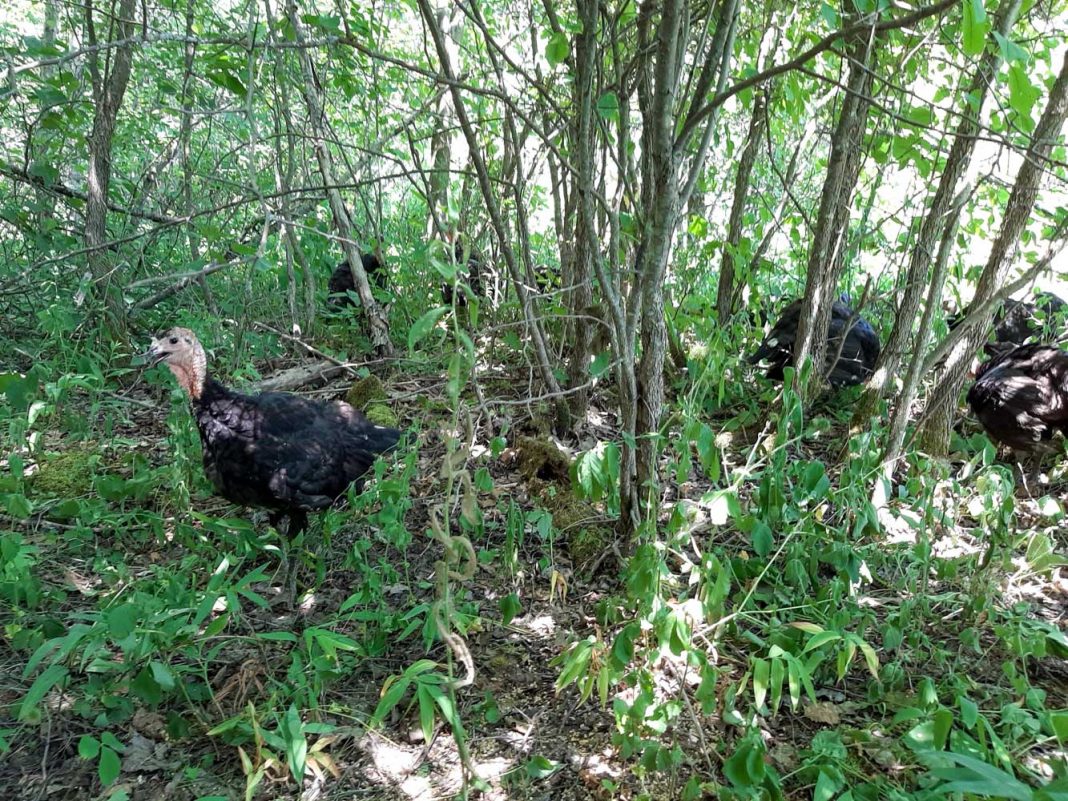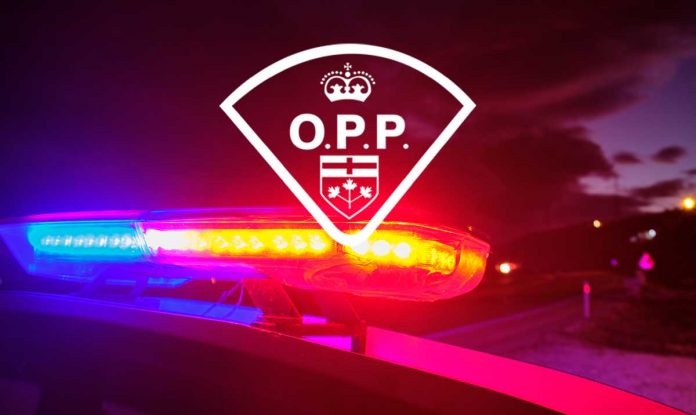Birds set free to establish domestic flock
WIIKWEMKOONG – Folks around Wiikwemkoong are starting to call Stitch Manitowabi (Gzaagitwin Anishinaabe) the ‘turkey whisperer’ due to his uncanny ability to gather up the notoriously skittish creatures. It has proved to be a valuable skill these days as Wiikwemkoong Department of Lands and Natural Resources (WDLNR) has been releasing turkeys into the wild.
The mzise (turkey) release program is part of the department’s four S approach focusing on sustainability, food security, subsistence harvesting and sovereignty.
“So far we have released 11 of the 50 birds we are planning in this phase,” said Mr. Manitowabi, who noted that the program has faced some challenges in sourcing the turkeys due to the travel restrictions in reaction to the pandemic.
“We have been trading with our cousins to the south,” he said, noting that accessing chicks would normally have been fairly straightforward were it not for the pandemic.
But the birds that have been released into the wild in the northern portion of the Wiikwemkoong Unceded Territories have a good shot at establishing a population. “They are around five to 10 pounds each and ready to roost in the trees,” said Mr. Manitowabi.
The turkeys received a great send-off. “We made it a big event,” he said, “walking out ceremony and everything.”
The key reason that the WDLNR chose the more remote areas of the territory to release the turkeys in the hope that the community will refrain from harvesting the birds in the short term, allowing them to become well-established with a self-sustaining population.
“Hopefully, these 50 turkeys will become hundreds and thousands so that down the road we will have another healthy local food source for the community,” said Mr. Manitowabi.
The turkey release program is just one of a number of initiatives that are being pursued by the WDLNR. An Anishinaabe corn program is also underway as is a wild rice project.
“Indian corn is different from the regular corn you find in the grocery store,” explained Mr. Manitowabi. “It’s not just something you take home and throw in a pot to boil, there is a whole process to preparing it.”
They have also been working on the introduction of a wild rice program as well, and exploration and assessment of the lakes and rivers of the Unceded Territorities seeking natural stands of the staple are ongoing. Underlying the program is a retro application of the traditional Indigenous trading networks.
“We have accessed 90 pounds of corn seed from our partners in New York,” said Mr. Manitowabi. “We are hoping to trade wild rice with them.”
The WDLNR is also exploring the re-introduction of wood bison to the region. “They are very well adapted to the territory,” he said. Wood bison were a staple of the traditional food sources of the Aninishinabek, as well as being a source of raw materials for tools, clothing and a host of other uses.
Grant programs have been accessed to provide funding for the purchase of nets and other fishing equipment as well. Those programs are seeking to enhance community sustenance and food security, as opposed to commercial applications, he notes.
“We are trying to take a diversified approach,” said Mr. Manitowabi, stressing that the programs are not about economic development, but rather bringing the community back to a more land-based traditional diet. The processed foods found on grocery store shelves that Indigenous communities have become dependent on have been linked to numerous health issues, particularly diabetes.
With 150 community gardens in play across the Wiikwemkoong communities providing a strong base for local food security, the turkey release program could be considered just the tip of the iceberg (lettuce?) when it comes enhancing sustainable food security.
“We are following the four-S path with a view to the long term,” said Mr. Manitowabi. “That’s sustainability, food security, subsistence harvesting and sovereignty.”





